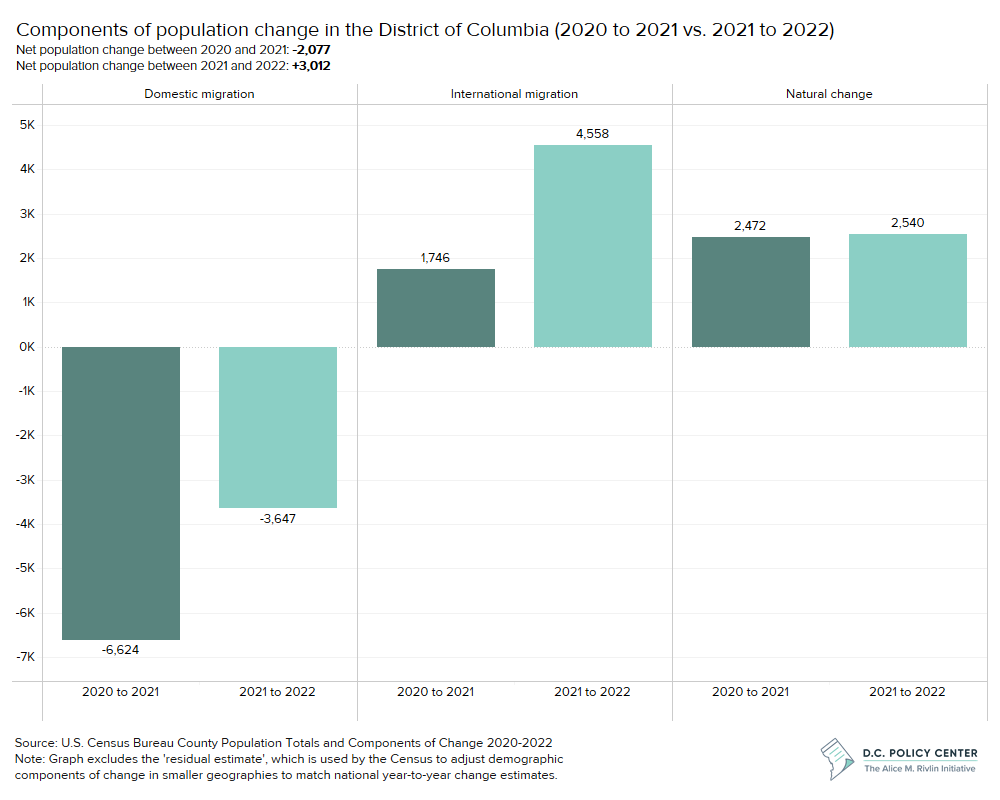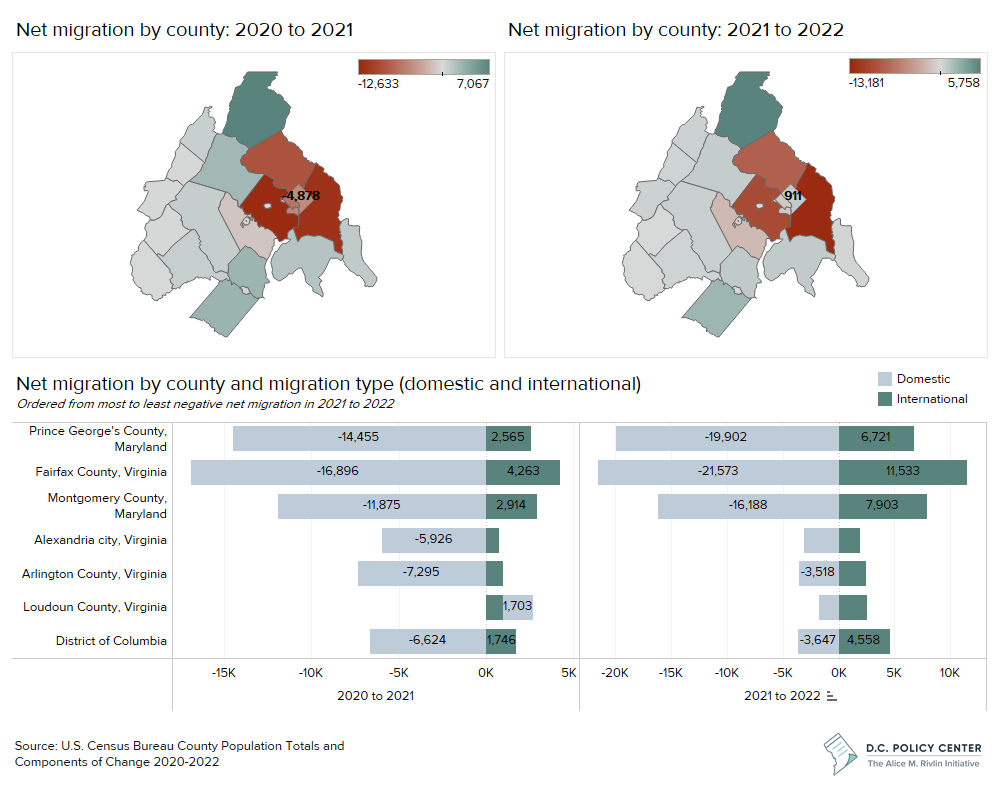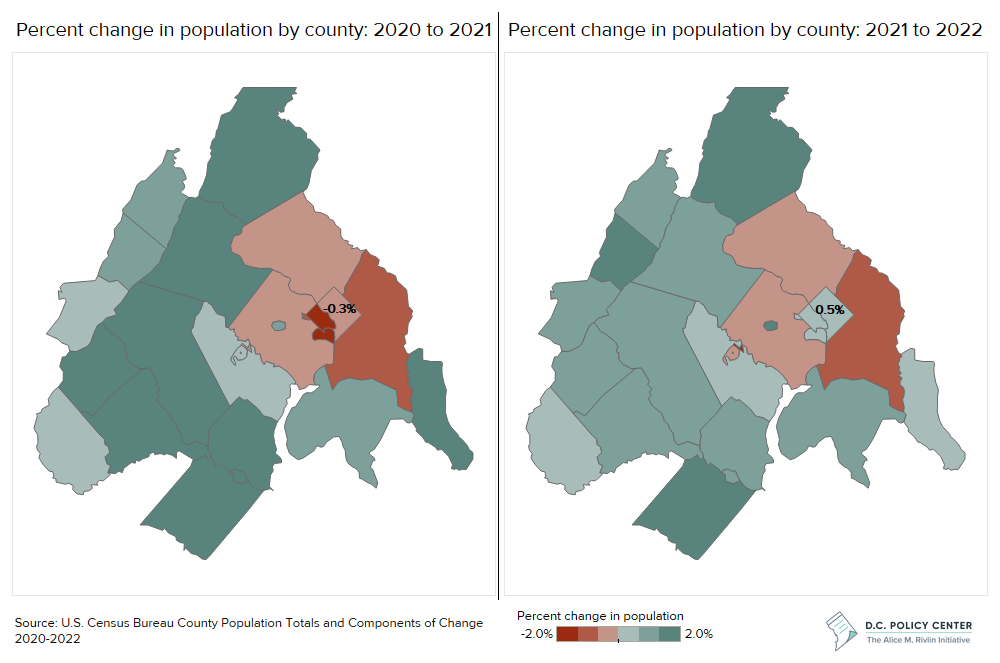Population growth is slowing in the exurbs and improving in D.C.
At the peak of the COVID-19 pandemic (2020 to 2021), D.C. and the region’s core counties experienced population loss. In this time, many urban residents looked to the suburbs or smaller metropolitan areas for more space or a lower cost of living. As a result, the region’s exurbs experienced population growth, while the rest of the region’s population declined.
Between 2021 and 2022, population continued to grow in the exurbs, but at a slower rate than the peak of the pandemic. And, while many counties in the region’s core continued to experience population loss, D.C. experienced some growth. This could indicate that the shock to D.C.’s population caused by the pandemic is short-term.
D.C.’s slight population boost stemmed from births and an uptick in international migration.
Between 2021 and 2022, D.C. gained a net of 3,012 residents. The reversal of peak pandemic population loss is attributed to the city’s uptick in international in-migration, likely following the lift of many pandemic related travel restrictions. Meanwhile, the city’s natural change in population (births – deaths) remains similar to the previous year, and D.C.’s domestic migration remains negative.

Counties with net in-migration tend to be further from the region’s core.
Between 2021 and 2022, D.C. was the only jurisdiction in the region’s core to experience a reversal of peak pandemic net out-migration. But, in this time, while every county in the region’s core experienced positive international migration, no counties within the region’s core experienced positive domestic migration. Meanwhile, the exurbs are still experiencing positive net migration—likely stemming from a continued increase of domestic residents.
This implies that while the shock to D.C.’s population caused by the pandemic appears to be short-term, the city (as well as the region’s urban core), is still at risk of losing residents and workers to the suburbs and exurbs.

